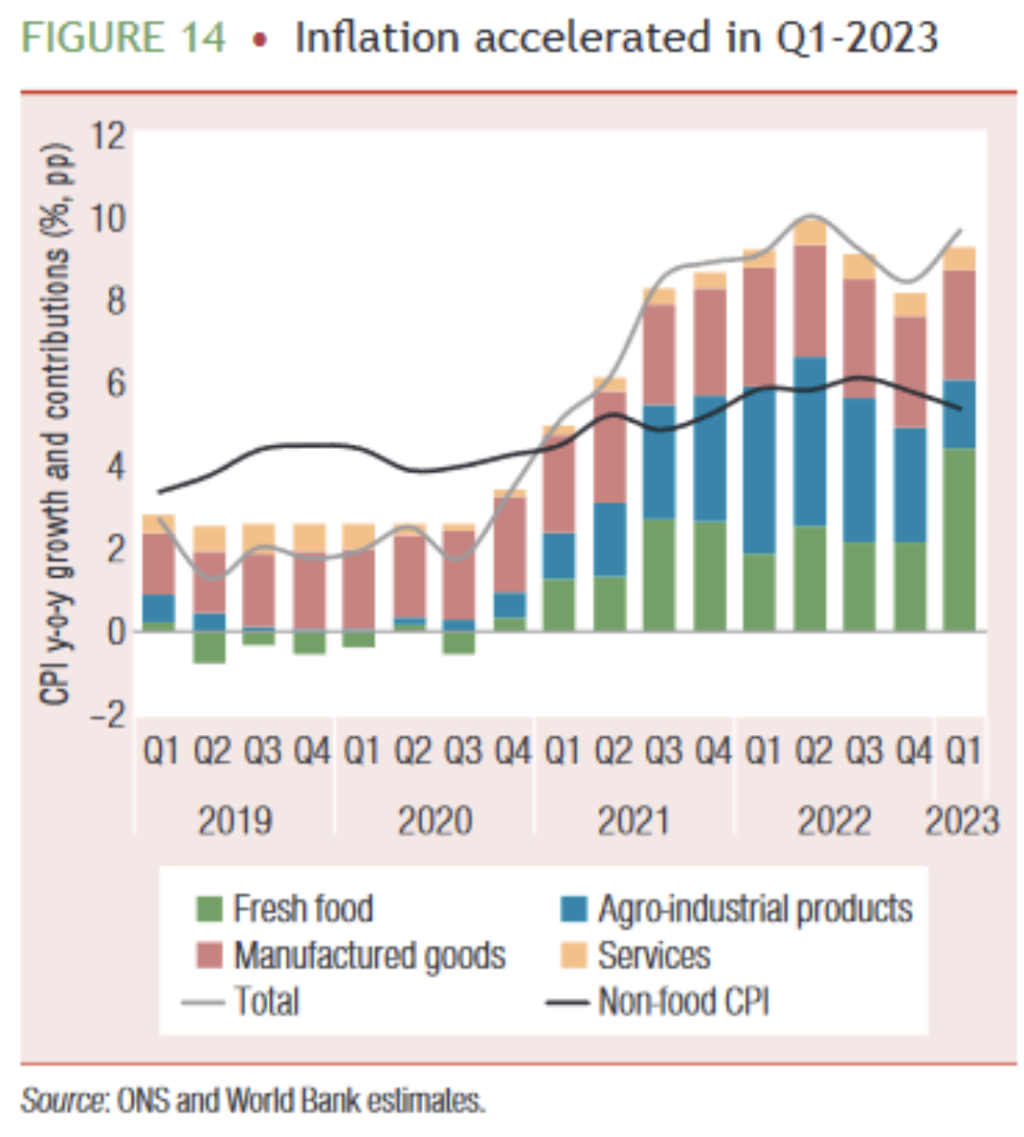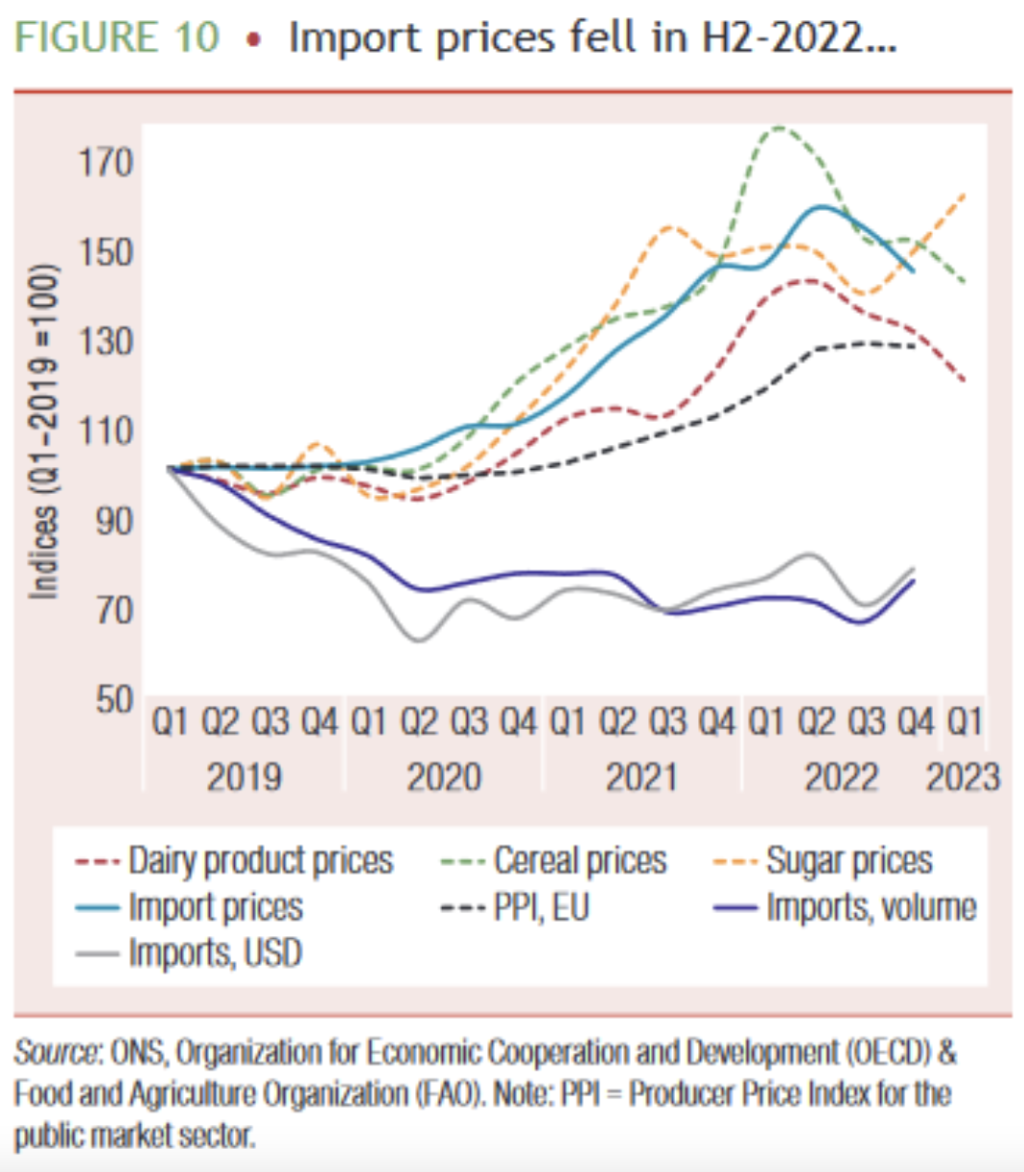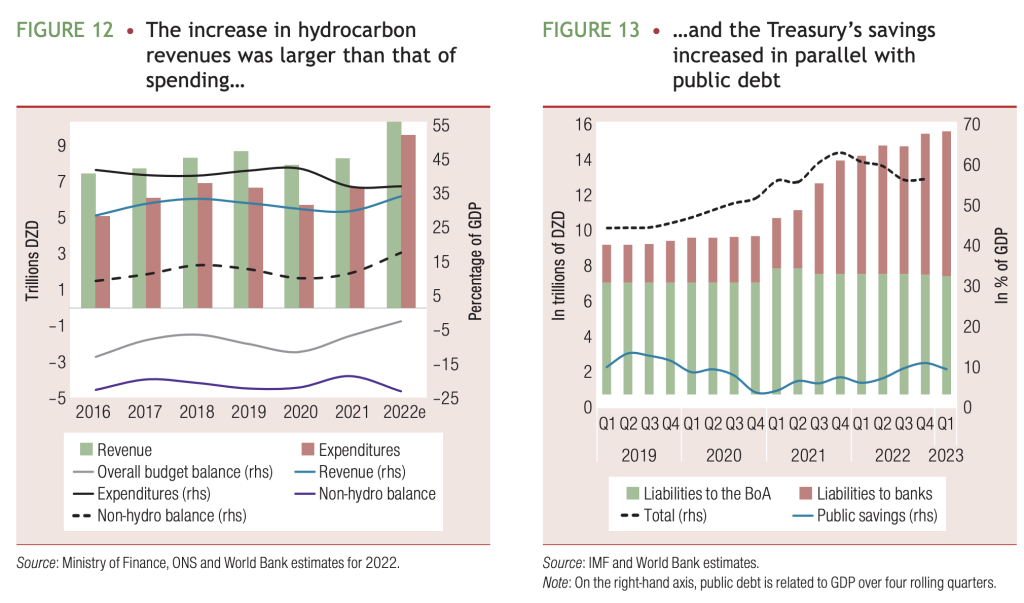Highlights:
Inflation remained high in Q1-2023, led by the price of fresh agricultural products.
Inflation rose to 9.8 percent y-o-y in Q1-2023, despite moderating prices of imported goods (figures14 &10), at which time the authorities raised the reserve requirement ratio and strengthened price controls on some food products. In 2022, growth in the consumer price index had reached 9.3 percent, driven by rising food prices.


To contain imported inflation, the Bank of Algeria had supported the appreciation of the dinar in H2–2022.
The budget deficit narrowed in 2022, despite the surge in government spending absorbing most of the increase in hydrocarbon revenues (figures 12 & 13).

The nonhydrocarbon sector is expected to support growth in 2023, but the decline in oil prices would weigh on trade and fiscal balances.
Inflation, particularly in agriculture, is expected to remain high, despite the decline
in import prices.
Lastly, climate shocks constitute a growing risk for the Algerian economy and that of the region.
| Year of publication | |
| Geographic coverage | Algeria |
| Originally published | 26 Jun 2023 |
| Related organisation(s) | World Bank |
| Knowledge service | Metadata | Global Food and Nutrition Security | Food security and food crises | Food and nutrition securityFood price crisis |
| Digital Europa Thesaurus (DET) | policymakinginflationeconomic analysissocial protectionagricultural productionfiscal policy |
